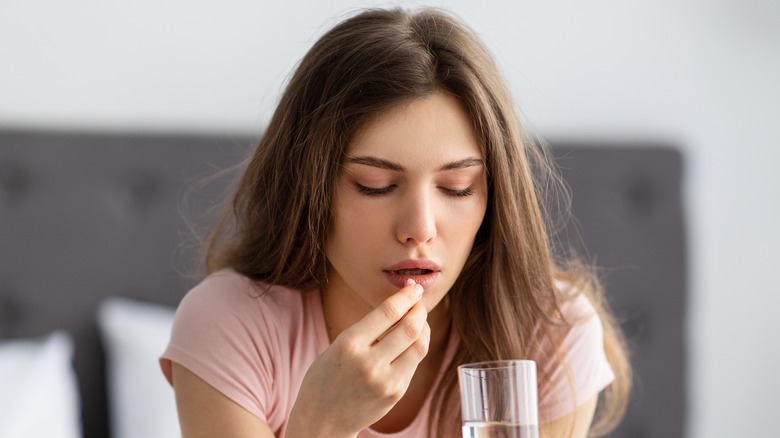Handling The Effects Of Antidepressants On Libido, Whether It's Yours Or Your Partner's
Physical compatibility is essential within romantic relationships. Therefore many couples feel the need to consider each partner's sex drive before determining the longevity of that partnership. When analyzing who you want to spend your life with, it is crucial to ensure you will be a good match mentally, emotionally, and physically. However, as people change and seasons of life shift, sometimes outside factors also play a role in the relationship dynamic, even if you were both on the same page initially. Occasionally, some people find that their libido has shifted due to stress, anxiety, or side effects of medication.
If you or your partner have depression or PTSD, antidepressants may be your saving grace. For many, this medication is the right path, but it will likely affect your libido. While there are side effects with any medication, not all of them have a significant impact on your life and relationships. Unfortunately, common antidepressants prescribed don't just come with headaches or nausea but possibly a low sex drive too.
What causes a low sex drive?
Since it's not advised to stop taking your medication even if you think it's negatively affecting your libido, many question their next steps. Medical director and ob-gyn Lauren Streicher explained to SELF that antidepressants and depression alone can lead to abnormal sexual function. According to research, well over half of those diagnosed with depression will experience some form of this, whether it's low libido, sexual pain, or issues with orgasm. It is also helpful to understand how anxiety can affect your sex drive. It can be hard to tell if antidepressants complicate these struggles, cause them, or improve them. As with most medical situations, it really depends on the person. For women, it may be beneficial to understand how ovulation really affects your libido as well.
Serotonin is another factor that has been known to affect libido since it has a direct impact on your mood. Frequently coined the "feel-good" hormone, lower serotonin levels in the brain are often mitigated by taking antidepressants. Interestingly, this doesn't always increase sex drive and may actually lower it due to arousal issues. Since so many factors could affect your libido, determining your next steps may require some trial and error.
How to move forward in life?
There are many complications surrounding a low sex drive, and the role antidepressants play. However, the path forward looks different for everyone. It may feel like a manageable side effect during your current stage of life, or it can feel just as detrimental as your depression. Therefore, talking to your doctor about your medical history and treatment options is vital. As with most medications, it can take time for your body to adjust. So, if you or your partner are willing to give it some time, things might balance out after a month or two. Another option is changing the dose of your medication or switching your antidepressants altogether. Ultimately, communication is your best approach regarding your libido, whether with your doctor or partner.
There may be natural ways to boost your sex drive, or you may want to look into the best essential oils for your libido before turning to your doctor to discuss options. Regardless of the approach, it is never a good idea to stop taking prescribed antidepressants before talking with your doctor. This can lead to many different side effects and returning symptoms of depression or anxiety. While all of this can feel overwhelming, it's important to remember that these side effects are normal and common. Remembering that you are not alone is essential while navigating this journey.


